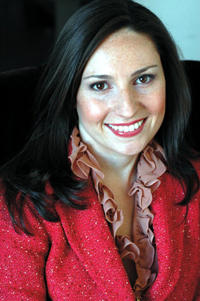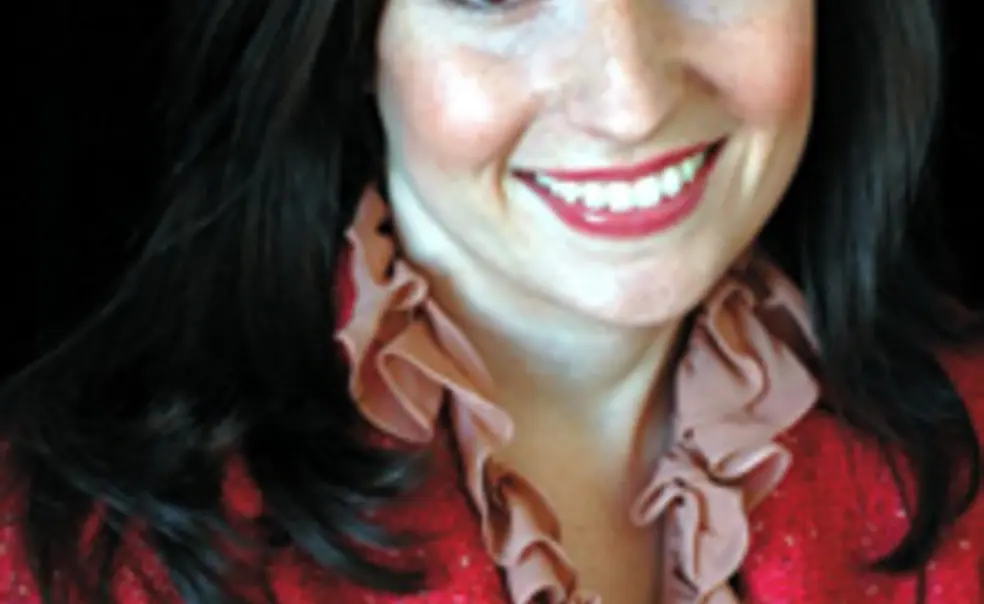Whelan '99 gathers advice for young adults

When Christine B. Whelan ’99’s college students began coming to her dismayed with the tough economic times, the difficulty of landing jobs, and their own problems with procrastination and stress, she looked to the hundreds of self-help books on her shelves. A visiting assistant professor of sociology at the University of Pittsburgh who studies the self-help industry, she culled the best advice from self-help gurus and then had her students test that advice in their lives to see what worked. The result: Generation WTF: From “What the #%$&?” to a Wise, Tenacious, and Fearless You (Templeton Press). Last semester, her students even road tested galleys of her book. With places to record goals and quizzes along the way as well as an interactive website (generationwtf.com), the book helps readers examine their values, set and achieve goals, save money, and improve their relationships. Whelan spoke with Katherine Federici Greenwood.
Whom did you write your book for?
This is geared toward a generation [18- to 25-year olds] that feels like they have been baited and switched. They were raised in a time where everything seemed to continue to go up, whether it was the housing market or the stock market. And they also were raised with very big and bright expectations for their futures. … Starting around 2008, my students at the University of Iowa came to me and said, “WTF”: “What happened to the jobs?” Or, “I had a summer internship lined up. I got fired before my first day.” Or on the college level, “I worked really hard to get here, but now I’m having all kinds of problems with procrastination. I feel like I’m a little bit burned out. …” They are coming of age in a tough economy but without having been taught the life skills they will need to succeed in these hard times.
You had your own students from the University of Iowa and the University of Pittsburgh road test advice from gurus. How did that work?
I took a course that I was teaching, on the sociology of self-improvement, and turned it toward them. I said, “Here are the books that I think are the best of classic self-help. Why don’t you try these in your life and then critique them. You can tell me all of this is hogwash.” I had more than a hundred students over several semesters testing out advice from Dale Carnegie, Scott Peck, Stephen Covey, all these classical self-help gurus. … They took bits and pieces of the advice and said, “This works for me, but this doesn’t. And here’s how I can adapt it so that it works for my millennial life.” So my book is the best of classic self-help remixed for this generation by this generation.
For example, one classic bit of advice is called the Franklin effect. It comes from Benjamin Franklin, who noted that if you ask a small favor of somebody, then that person is more likely to do a big favor for you down line, because you established a relationship. …. So my students tried this. They noticed that this works, but not via text message or e-mail. You have to ask for the favor in person.
What advice did your students find most useful?
Some of the Dale Carnegie advice about real basic social graces. [Among] his strategies that I’ve remixed and made appropriate for the young adult audience are: turning off your cell phone when a friend is confessing a personal problem to you and not texting someone else in a face-to-face conversation.
What does this age group struggle with, based on your research for this book?
I think the procrastination issue is a really big one. Technology has been wonderful for them in terms of letting them keep in touch with high school friends and being able to access lots of information. But it also provides a terrific distraction from schoolwork and reading and all the things they need to do to succeed, which leads to unnecessary stress. That’s where this very simple idea of a time journal comes in. For a week I tell students to pretend like they are lawyers and track their time in 15- or 30-minute increments.
Did you find anything surprising about what this generation values or what they want out of life, work, love?
Two things. First of all, it is really, really heartening to ask young adults to list their values. This idea that we have to worry about young adults being narcissistic and lacking empathy — that is just not true. [They conveyed] values of strong relationships, of faith, of giving to others, of getting involved in the community, of security, honesty, and integrity. So that’s on the good end.
A challenge is that because this generation has seen their parents struggle with employment and seen so many people who work hard lose their jobs, they are a little bit jaded about the incentive to start at the bottom, prove yourself, and work your way up. I worry about that a little bit because that is still the way that you are going to succeed. But it is understandable why young adults seem to bristle more at that advice because they’ve seen it fail.
Interview has been condensed.












No responses yet